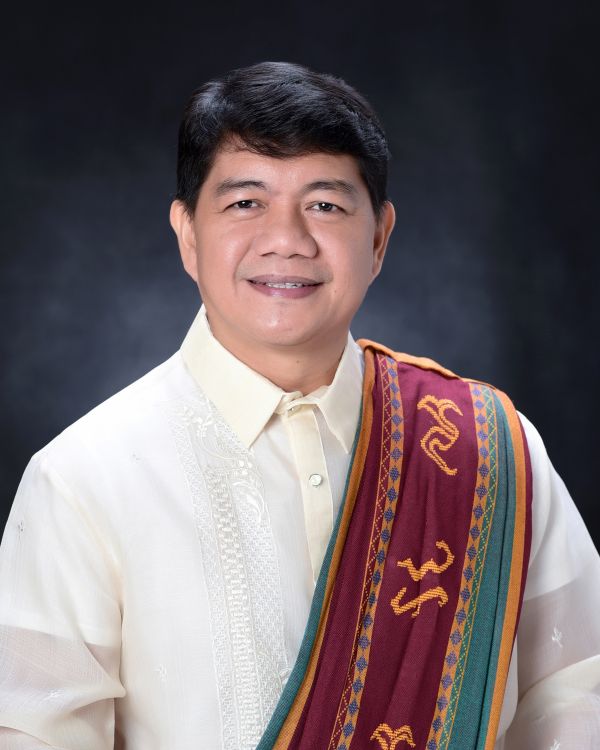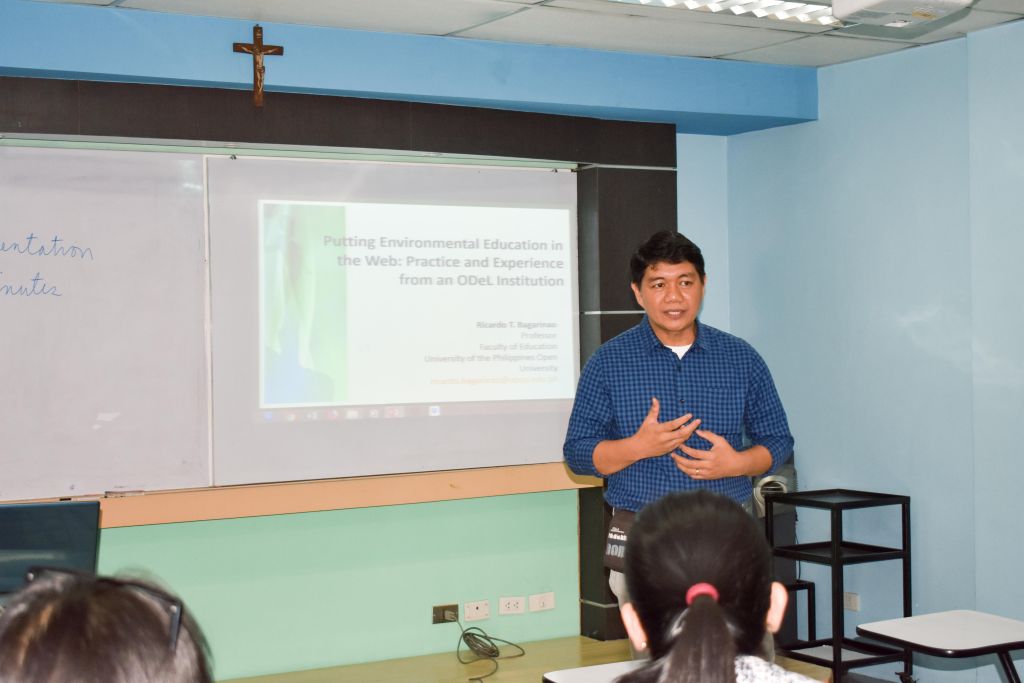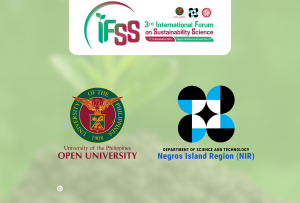Before Typhoon Yolanda devastated Leyte in 2013, there was Typhoon Uring, which caused a massive flash flood in Ormoc City and nearby areas, claiming 4000 lives. One of the families that fell victim to this massive natural disaster was that of a young Ricardo Bagarinao.
From that teenager in Ormoc, Dr. Bagarinao has grown to become one of the foremost experts in sustainability and environmental studies in the country. He is currently a Professor under the PhD in Education (Biology) at the Faculty of Education (FEd) of UP Open University (UPOU) and Program Chair of the Doctor of Sustainability program at the Faculty of Management and Development Studies (FMDS). He is also an affiliate faculty member in the Master of Environment and Natural Resources Management program at FMDS.

Prof. Ricardo T. Bagarinao
Dr. Bagarinao is a prolific researcher and has published numerous journal articles in environmental science and sustainability studies. As someone who has experienced a life-altering disaster, he has studied various ecosystems with the purpose of informing biodiversity conservation, environmental planning, and climate adaptation. For him, “Knowledge not applied is worthless.”
One such study is his research on forest fragmentation in Central Cebu using the landscape ecological approach, a way of managing landscapes that considers the interconnectedness of natural and human systems. “It not only helped me understand how to address water-related hazards like floods and mudslides,” he shared, “but also provided insights on how to manage limited water resources more efficiently, especially in Cebu. It allowed me to see the interconnections of socio-ecological elements in maintaining productive ecosystems.”
For Dr. Bagarinao, research plays a critical role in environmental management. “Research provides empirical information that could help communities make well-informed decisions for their disaster preparedness plan,” he explained. Good disaster preparedness guides communities on what and how to do in case of a disaster.”
He also supports interdisciplinary thinking in research. This is evident in his surprising application of the landscape ecological framework for his research in open and distance e-learning (ODeL). He said, “I look at the ODeL learning environment as a highly fragmented landscape.” He gathered the logged data of the students to see when, where, and how they moved in virtual spaces. He argued that if interconnectedness is not maintained either by technology or learning design, students’ virtual mobility could diminish, leading them to disengage or relocate to a more connected landscape. He shares, “This metaphorical application of the landscape ecological framework has helped me innovate on how I teach courses at UPOU.”

Dr. Bagarinao shares about his studies about environmental education.
Dr. Bagarinao also believes in the power of education in helping build a more sustainable future for society. As one of the proponents of the Doctor in Sustainability Program, he has been instrumental in the development of this professional doctorate, which aims to produce graduates who can develop research-based solutions to persistent sustainability challenges in the context of their profession.
He believes that people’s mindsets and behaviors remain the biggest hurdles to achieving sustainable development. However, he sees environmental education as a powerful tool to transform these perspectives and empower individuals to make environment-friendly decisions, regardless of their context. “Most of the environmental issues we have are perspective-related and behavioral,” he explained. “Likewise, people’s decision-making system is context-dependent. Unless these three are addressed, environmental issues will persist. Education has the power to develop these capacities in people.”
For his outstanding scientific contributions, Dr. Bagarinao has been conferred the title of University Scientist I from 2013 to 2018 and University Scientist II from 2019 to 2021. Beyond disseminating his research results, Dr. Bagarinao sees publication as a way to mentor students in research. His advice to young researchers and academics: make research and publication a part of their everyday life, collaborate across disciplines, and look at every piece of work as a means to improve teaching, management, or practices.
The Ormoc tragedy left a lasting impression on Dr. Bagarinao. Instead of demoralizing him, the unfortunate event helped shape his future career to benefit various communities. “I was thinking that through this, I could contribute important information that can help people make decisions about their relationship with nature,” he reflected.
Written by Primo G. Garcia











